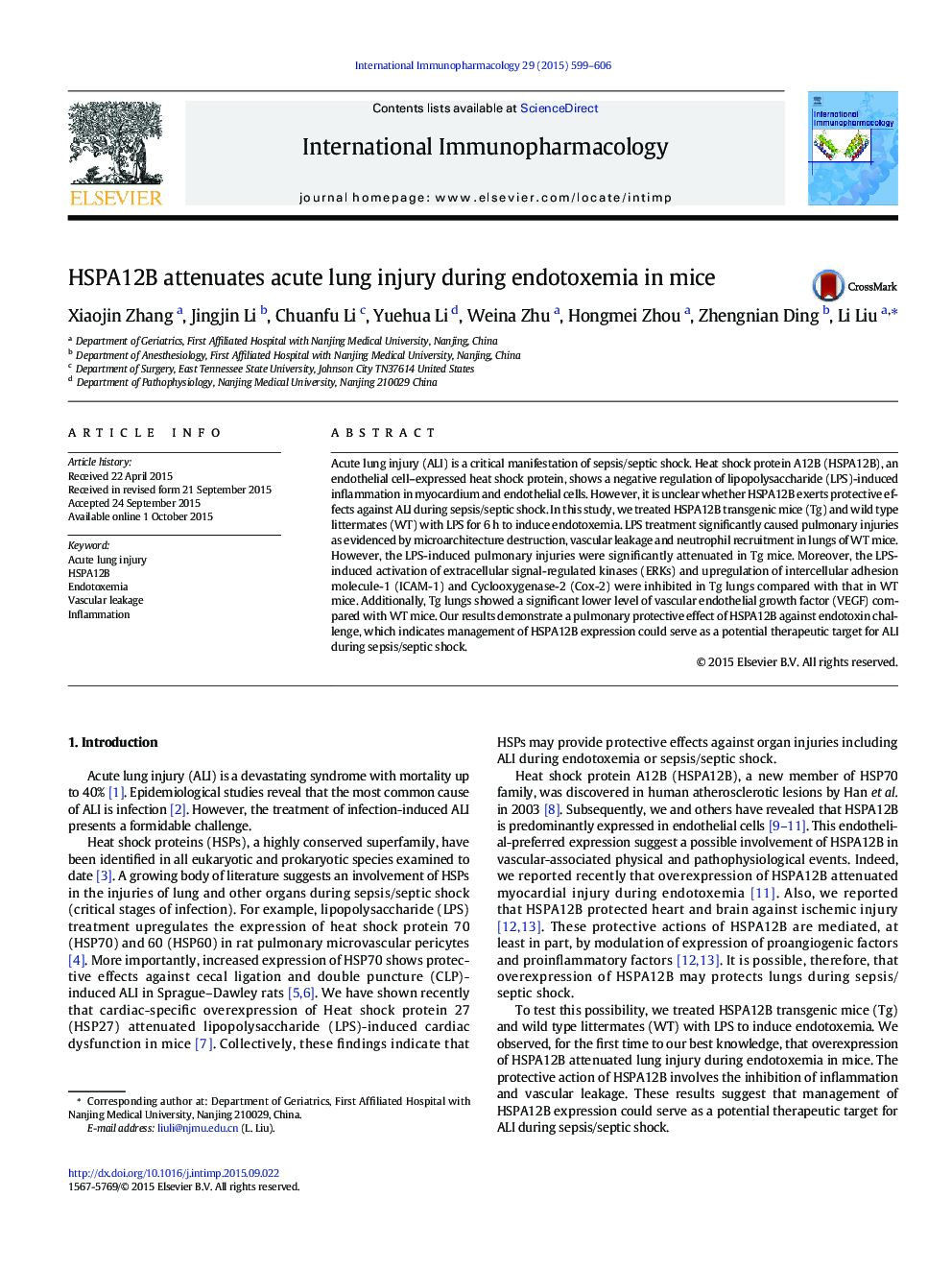| Article ID | Journal | Published Year | Pages | File Type |
|---|---|---|---|---|
| 5832217 | International Immunopharmacology | 2015 | 8 Pages |
â¢HSPA12B attenuated the histological abnormalities in lungs during endotoxemia.â¢HSPA12B suppressed the pulmonary vascular leakage during endotoxemia.â¢HSPA12B suppressed inflammatory response during endotoxemia.â¢HSPA12B suppressed activation of ERKs during endotoxemia.â¢Collectively, HSPA12B attenuated acute lung injury during endotoxemia.
Acute lung injury (ALI) is a critical manifestation of sepsis/septic shock. Heat shock protein A12B (HSPA12B), an endothelial cell-expressed heat shock protein, shows a negative regulation of lipopolysaccharide (LPS)-induced inflammation in myocardium and endothelial cells. However, it is unclear whether HSPA12B exerts protective effects against ALI during sepsis/septic shock. In this study, we treated HSPA12B transgenic mice (Tg) and wild type littermates (WT) with LPS for 6Â h to induce endotoxemia. LPS treatment significantly caused pulmonary injuries as evidenced by microarchitecture destruction, vascular leakage and neutrophil recruitment in lungs of WT mice. However, the LPS-induced pulmonary injuries were significantly attenuated in Tg mice. Moreover, the LPS-induced activation of extracellular signal-regulated kinases (ERKs) and upregulation of intercellular adhesion molecule-1 (ICAM-1) and Cyclooxygenase-2 (Cox-2) were inhibited in Tg lungs compared with that in WT mice. Additionally, Tg lungs showed a significant lower level of vascular endothelial growth factor (VEGF) compared with WT mice. Our results demonstrate a pulmonary protective effect of HSPA12B against endotoxin challenge, which indicates management of HSPA12B expression could serve as a potential therapeutic target for ALI during sepsis/septic shock.
